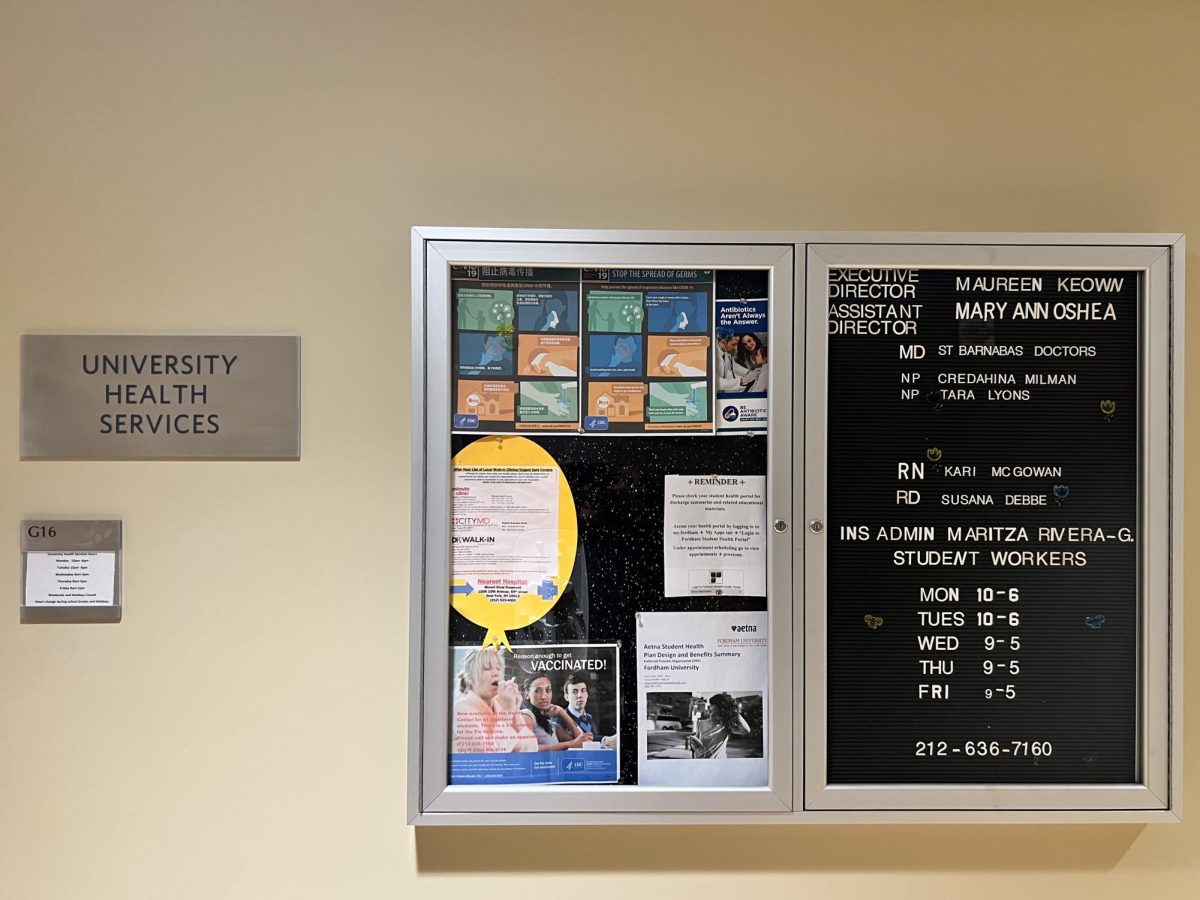Respiratory viruses and illnesses — including COVID-19, Influenza (flu) and Respiratory Syncytial Virus (RSV) — have been increasingly prevalent in New York City per a guidance released from the New York State Department of Health (DOH) on Jan. 8. This uptick in cases has led to hospitalizations and, according to ABC News, has categorized New York City as an area experiencing “high” or “very high” levels of respiratory illness.
Director of University Health Services (UHS) Maureen Keown sent a university-wide communication on Jan. 16 outlining the updated respiratory illness guidance for the spring 2024 semester. She noted the three respiratory illnesses highlighted in the New York State DOH’s press release and added that UHS continues to monitor their activity and adjust its recommendations accordingly.
“We should all be extra careful to help prevent the spread of illness and we may need to alter our behaviors as needed depending on the level of illness we are seeing at any given time,” Keown said in the email.
What Is a Respiratory Illness?
According to the Centers for Disease Control and Prevention (CDC), respiratory viruses commonly cause illnesses such as the three highlighted — COVID-19, flu and RSV — during seasons with colder temperatures. These illnesses may present themselves in different degrees of severity with some including more symptoms than others.
The National Foundation for Infectious Diseases (NFID) charts the different symptoms that may be experienced across the respiratory viruses. While respiratory illnesses may include common symptoms such as a cough, headaches, sneezing, runny nose and congestion, the following symptoms can differentiate which virus is infecting the body — aches, difficulty breathing, fatigue, fever, loss of taste or smell, sore throat, and wheezing.
Per the chart outlining the severity of symptoms from the NFID, the most discernible differences in symptoms between the illnesses are the following: loss of taste or smell is a symptom specific to COVID-19, wheezing is a symptom specific to RSV, and aches are often associated with the flu.
Tips on Prevention and Fordham Resources
The university-wide communication from Jan. 16 categorized the different measures and available resources Fordham students should utilize should they be experiencing symptoms of COVID-19, flu or RSV infections. Keown highlighted tips to stay healthy, which included getting tested if symptoms are present, practicing good hand hygiene, preventing the spread by remaining home when symptoms are present and considering masking when sick to help protect others.
UHS provides rapid COVID-19 and flu testing for symptomatic members of the Fordham community in its offices. According to the university’s guidance from Keown, results of a COVID-19 test can be confirmed with a polymerase chain reaction (PCR) test through Labcorp and Quest if necessary.
Keown shared that all students are encouraged to come to UHS when they are feeling ill, with the healthcare provider determining what kinds of tests are necessary to treat each case. She outlined that when COVID-19 is being assessed, a rapid antigen test will be given and, if the result is negative — while symptoms persist — a PCR test may be given to confirm the reading.
The CDC outlines the difference between rapid antigen tests and PCR tests. These diagnostic tests differ in what they are able to detect — a PCR detects RNA from the virus while antigen, or rapid, tests detect proteins called antigens from the virus. The CDC also notes that PCR tests have “generally high” test sensitivity, which is confirmed by experts from Yale Medicine who noted that PCR tests are considered to be the most accurate available.
In addition to these recommendations, the university’s spring 2024 semester guidelines outlined procedures for vaccination, masking, home testing, close contact notification and isolation. The university, in accordance with guidelines from the CDC, encourages students to receive the most updated dose of the COVID-19 vaccine, which was first administered in September 2023.
As of May 15, 2023, the university no longer mandates members of its community to receive the updated COVID-19 vaccines or provide proof of vaccination against the primary series. Prior to this, the university had required community members and guests to Fordham’s campuses to receive the primary vaccination series for COVID-19 and up to the bivalent booster dose.
Cases of Respiratory Illness in New York City
According to Keown, UHS works closely with physicians at St. Barnabas Hospital in the Belmont neighborhood of the Bronx in addition to working with physicians and healthcare providers at the DOH.
Within its patient care page in relation to its clinical services, St. Barnabas highlights that the Bronx has New York City’s highest incidence of asthma and chronic obstructive pulmonary disease, in addition to smoking-related lung conditions.
Additionally, Keown noted an increase in citywide data regarding rising flu cases that have caused visits to emergency departments in hospitals since November 2023.
“NYC DOH reports an increase in cases of COVID-19, due to a SARS-CoV-2 variant that has been circulating in the city over the past couple of months.”
Keown shared that UHS has only seen a few cases of COVID-19 on campus recently. She added that there are no imminent health threats to the Fordham community.
“Prevention is key to decreasing these respiratory illnesses and in promoting positive health behaviors,” she said.


